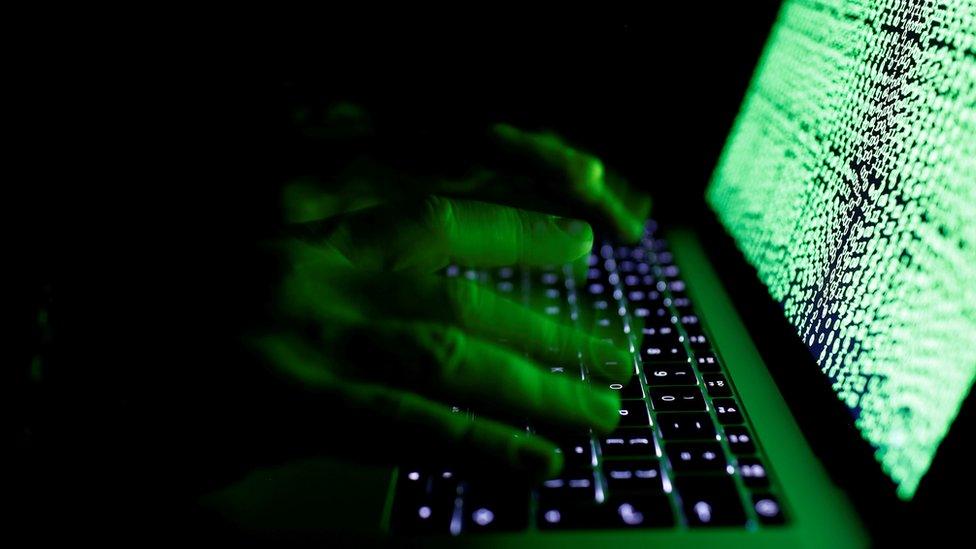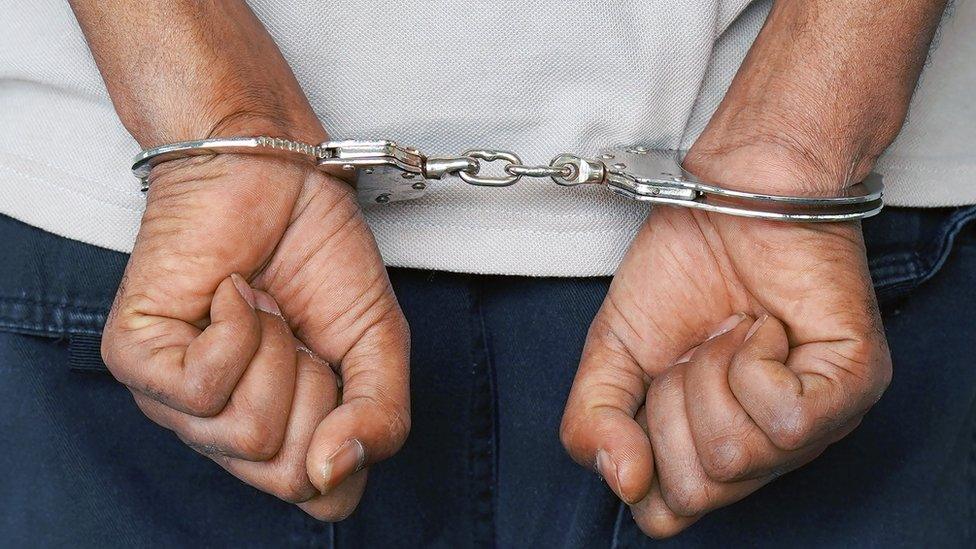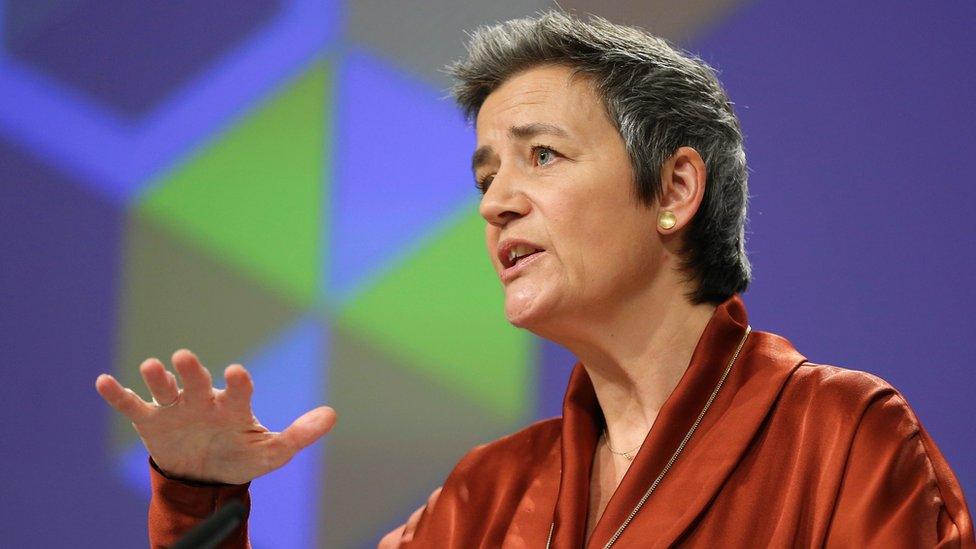EU data law row threatens child abuse investigations
- Published

Global internet firms could be banned from automatically detecting child abuse images on their systems from as early as next Monday, amid a row over privacy laws within the European Union.
The companies voluntarily assist police across the UK and Europe but face being forced to stop the work.
Talks are ongoing to try and create an exemption for the tech giants., external
Child safety experts say if the row is unresolved the law will inadvertently make it easier for abusers.
The threat to the investigations has been triggered by attempts in the European Parliament to protect private online communications from monitoring by internet companies.
However, the new rules could prevent those same companies using software to automatically scan for child sexual abuse material going through their systems.
The tools developed over a decade can identify:
Newly-created violent and exploitative images that have not yet been logged by investigators
Online conversations which have the hallmarks of abusers grooming victims
On Thursday, talks in Brussels between the European Parliament, Commission officials and representatives of the member states will attempt to agree how to exempt the internet companies, external from the incoming privacy law.
If those talks fail, the law will ban the use of the most automated tools that sweep through million of communications, before passing leads and patterns on to law enforcement agencies.
'Further harm'
John Carr, secretary of the UK Children's Charities' Coalition on Internet Safety and a globally-recognised expert in the field, warned that time was running out to ensure all of the detection work would continue.
"If Brussels does not change this law or put it on hold... sexual predators will have an easier time contacting children," said Mr Carr.
"There will be more videos of children being raped available for people to view or download.
"The latter not only does further harm to the children depicted in the videos, to the extent such material also encourages or sustains paedophile behaviour, it puts children as yet unharmed in danger in every country in the world."
WATCH: In June the BBC spoke to an internet safety campaigner and investigator who poses as a 14-year-old girl online
Experts estimate that if the most controversial privacy measures become law, there could be a 70% drop in reports from internet companies to law enforcement agencies across the world.
The US-based National Centre for Missing and Exploited Children received almost 17m reports from internet companies in 2019, including alerts about potential abusers and victims operating across Europe.
The UK's National Crime Agency has not commented on the stand-off in Brussels - but it is part of a global group of law enforcement organisations that has lobbied Europe because it believes there is a risk to investigations and protection work, external.
The outgoing US Attorney General William Barr is the latest to raise concerns, external, saying the plans in the EU risked undermining the global response to a global crime.
And MEP David Lega, co-president of the European Parliament's child safety group, said the privacy measures demanded by campaigners could set back the fight against online abuse 10 years.
"The cooperation between the tech companies and the law-enforcement authorities has proven instrumental in rescuing children in the EU and globally from child sexual abuse," he said.
"By introducing [privacy] conditions, we will just give companies the perfect excuse to stop the voluntary use of these technologies."
Related topics
- Published15 December 2020

- Published27 February 2020

- Published15 December 2020

